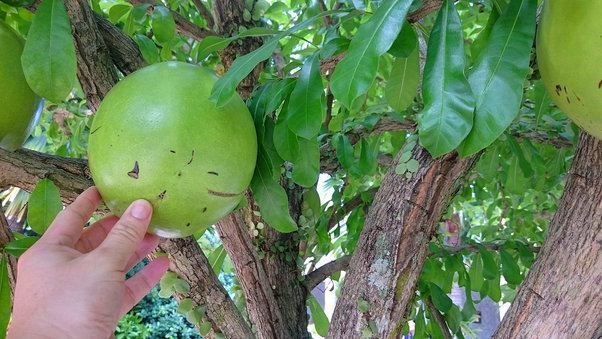Destination values, native heritage, and cultural identity are what we advocate for in our own particular way of safeguarding all reasons to love Aruba. Etnia Nativa, through this cultural blog, “Island-Insight,” shares native cultural awareness, educates, and safeguards native heritage. It is how we encourage you to experiment with an island-keeper state of mind during your stay.
In this episode, we introduce the Calbas (Crescentia cujete), an amazing tree that has been considered a sacred tree for many Amerindian cultural societies throughout the millennia. It blooms at night and is primarily pollinated by bats.
Its seeds have been dispersed all over the tropics by presumably hunter-gatherer nomads, and its proliferation continued during colonial times for its practicality, interesting shape, and reusable resistance. But this tree has also suffered discrimination lately by those who consider it something that belongs to the poor and the past, therefore cutting it down without any consideration.
The calbas fruit plays an important, if not central, role in the lives and mythology of Aruban and Mesoamerican histories and societies related to this part of the plant, attributed to its general durability and many practical applications, even medicinal ones. The “calbas” gourd is still used today in many kitchens, while others make beautiful handcrafted artifacts with it.
The gourd was used as a storage container; a gourd may hold harvested fruits, nuts, and crops or be used as a tool to serve and transport food or liquids. For thousands of years, the “calbas” has been extremely valuable as a practical, reusable bio-recipient as well as a musical instrument or in ceremonies. The pulp of the inner fruit is cooked into syrup to prevent the flu and upset stomachs. It is also said that this same white pulp full of flat black seeds is used against ticks and fleas by smearing the whole animal in it, letting it dry on its coat, letting it cure, and then rinsing it off with water.
Handcrafted maracas in the making: dried gourds with a stick inserted through them as a handle and filled with seeds as a shaker that is used to keep the rhythm during festivals and magical ceremonies. None compare with our Calbas; however, there are about 850 plant species that produce well-known natural fruits, which later can be used as lovely biodegradable containers. Some offer a great variety of colors; others have flavor; and others come in a variety of shapes and sizes, from the spherical to the bottle-shaped; some are edible. Many originated in Mexico and Peru. In Europe, various species of gourds were highly valued and sought after for both practical and decorative purposes. The gourd, like many religious and metaphysical symbols, serves two functions: it represents the womb, which carries seeds of fertility, and it also represents a culturally symbolic musical instrument. When a gourd is used as a water container, it may also be considered a carrier of life. Without water, there is no life. Unlike a harvested crop, which must be uprooted from the earth and loses its life force, water is in a continuous state of life.
Long before the Europeans arrived, the Guarani drank mate, a South American beverage, in containers made of gourds, where they mixed medicinal and aromatic herbs. This is how different gourds and “calbas” play important roles in different cultures. In the Taino creation myth, it represents disbelief and the loss of faith and was used in the divination rites of the Taínos. In this tribe, there is a story that tells that the Tainos, in their desire to “see” Yayael, murdered a warrior, who they were invoking in a ritual, believing that Yayael was physically inside the calbas. For this reason, happy in their eagerness to grab him, they spilled the “calbas’ contents.” When they realize that the contents of the gourd have turned into a fish, they give in to physical temptation and eat the fish. In this first myth, the pumpkins are represented as a tomb for dead beings and a womb for living beings.
Intrigued by Aruba`s origins and its cultural heritage? Then we encourage you to do something outside of the tourist grid and become the exclusive visitors of Etnia Nativa, a private encounter set up where you will be able to touch and be touched by authentic Aruba heritage, a spectacle of native art, archaic as well as archaeological artifacts, lithic tools, colonial furniture, and other items of the island’s bygone era. Get inside a recycled environment full of peace, relaxation, and knowledgeable Native stories.
Etnia Nativa has been, since 1994, the home of science and an acclaimed columnist, artist, and craftsman who guides and lectures you through his resplendent collection. The landmark Etnia Nativa provides an authentic glimpse into Aruba’s native cultural heritage. Something completely unique, a modern Native Aruba experience!
Appointment is required + 297 592 2702 or etnianativa03@gmail.com




















